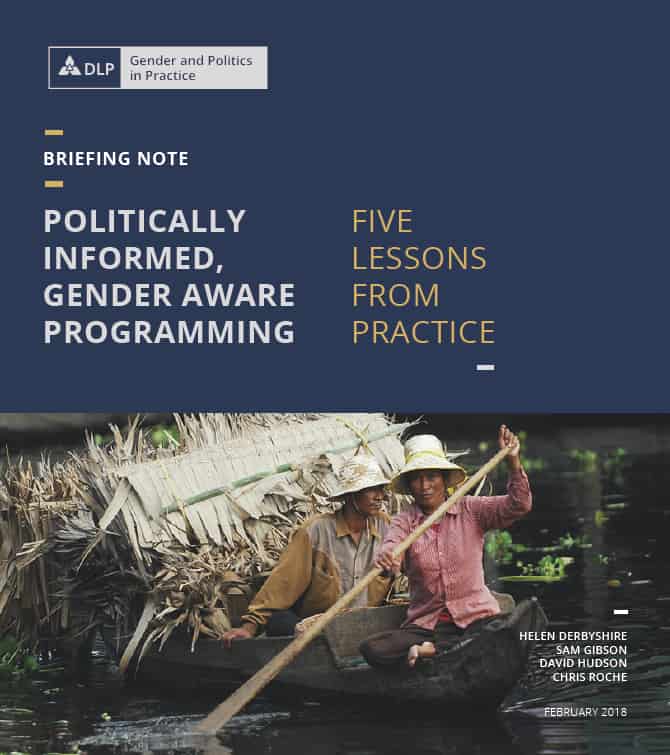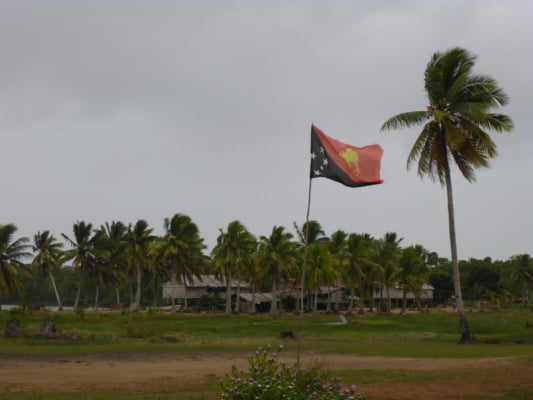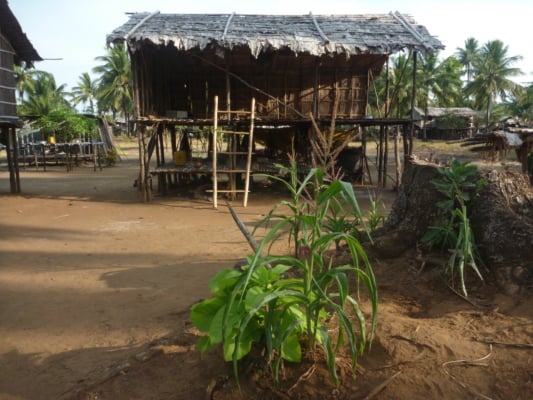This briefing note unpacks key lessons that emerge from the Gender and Politics in Practice (GAPP) research project, which asks how a gendered understanding of power and politics can make development work more effective. Many development programs tend to look at gender issues and politics separately. Through a series of case studies, this research asks what we can learn from more integrated approaches.
The note highlights the following five lessons:
- Support inclusive local leadership…
- … to bring political and gender analysis together – and use it
- … to drive politically informed, gender aware action for change
- …to plan for uncertainty and learn through adaptation
- Shape management systems to support these ways of working.
It suggests practical questions to consider in each of these areas.
For a more detailed discussion of these five areas, see: From Silos to Synergy: Learning from Politically Informed, Gender Aware Programs
GAPP is led by the Developmental Leadership Program, which involves the University of Birmingham and La Trobe University, in collaboration with the Australian Government. Partner organisations include The Asia Foundation, Palladium, RMIT, King’s College London, UCL and the University of Southampton. GAPP is supported by the Australian Government through the Department of Foreign Affairs and Trade’s Gender Equality Fund and DFAT’s partnership with The Asia Foundation.













